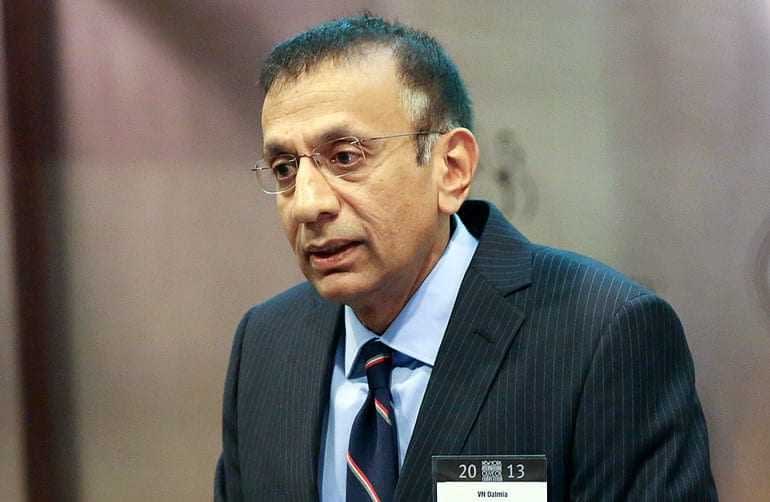
Dalmia Continental is getting out of the olive oil business. The company announced today it had sold its Leonardo brand to Cargill India.
VN Dalmia, 59, son of pioneer industrialist Ramkrishna Dalmia, said, “Dalmia Continental drove the olive oil market in India to high rates of growth and made Leonardo the leading brand. There is an inflection point in the life of each product and Leonardo is at that point. It is poised to take the next leap forward to retain its leadership status and Cargill is the best new parent to promote that effort.”
Himani Dalmia, general manager of Dalmia Continental, said the transaction “demonstrates our willingness to be flexible in the face of challenges and to implement the right strategy at the right time.”
The olive oil market in India reached 12,000 tonnes in 2013, according to the Indian Olive Association, which works out to a mere two teaspoons per year for the average Indian. In a 2008 interview, Dalmia predicted consumption of olive oil in India would reach 25,000 tons in 2010, and 42,000 tons in 2012 — forecasts that turned out to be way off.
Dalmia has been criticized for focusing his marketing efforts on olive pomace oil — the lowest edible grade made by chemically extracting the last bit of oil from leftover olive pits and pulp, that is shunned by much of the world where it is relegated to use in foodservice. But Mr. Dalmia told Olive Oil Times in a 2011 interview his critics had it all wrong. “Criticism is misconceived and displays a lack of understanding of the realities of the Indian marketplace,” he said. “Good marketing consists of determining and giving the customer what she wants and needs rather than trying to shove your product down her throat and tell her what is better for her.”
In 2012, the company was served an order by the Advertising Standards Council of India (ASCI) to withdraw its print advertisements which had claimed that Leonardo Olive Pomace Oil “helps fight cholesterol and heart disease,” “lowers blood pressure,” “controls and prevents diabetes” and “fights cancer.”
In its decision, the ASCI wrote: “Pomace olive oil is produced by solvent extraction and has polycyclic aromatic hydrocarbons (PAHs) which are both mutagenic and carcinogenic. This is contradictory to the claim made for olive pomace oil in fighting cancer. Additionally, the health benefits of olive oil are from extra virgin olive oil due to its antioxidant content, which is not present in pomace olive oil.”
Speaking last year at a seminar that was part of the New York International Olive Oil Competition, Dalmia laid out his reasons for asking Indians to consider the grade that can’t even be legally called “olive oil.”
Traditional Indian cooking often calls for oil to be added to a hot pan, which would eliminate the sought-after tastes and many of the nutrients in extra virgin olive oil. Olive pomace oil costs far less than other grades, Dalmia argued, and what Indians really need is the “lowest hurdle” to a monounsaturated fat that can replace the unhealthy polyunsaturated seed oils that have been contributing to their early deaths.
Last August, Mr. Dalmia, who is also the president of the Indian Olive Association, touted the “discovery of micro-nutrients in olive pomace oil,” producing lab reports that showed a higher amount of the compound tocopherol in a sample of olive pomace oil than in any of nine samples of extra virgin olive oil tested. Experts called such test results highly unlikely and the International Olive Council requested the samples to confirm the results in its own labs, which eventually found significantly lower levels than Dalmia reported.
Commenting on the acquisition, Siraj Chaudhry, chairman of Cargill India, said “We have a history of acquiring brands with very high pedigrees. Leonardo Olive Oil is an iconic and trusted name associated with purity, goodness and cooking healthy delicious food, since 2003. Olive oil is a rapidly growing segment gaining much popularity as a healthy cooking option.”

